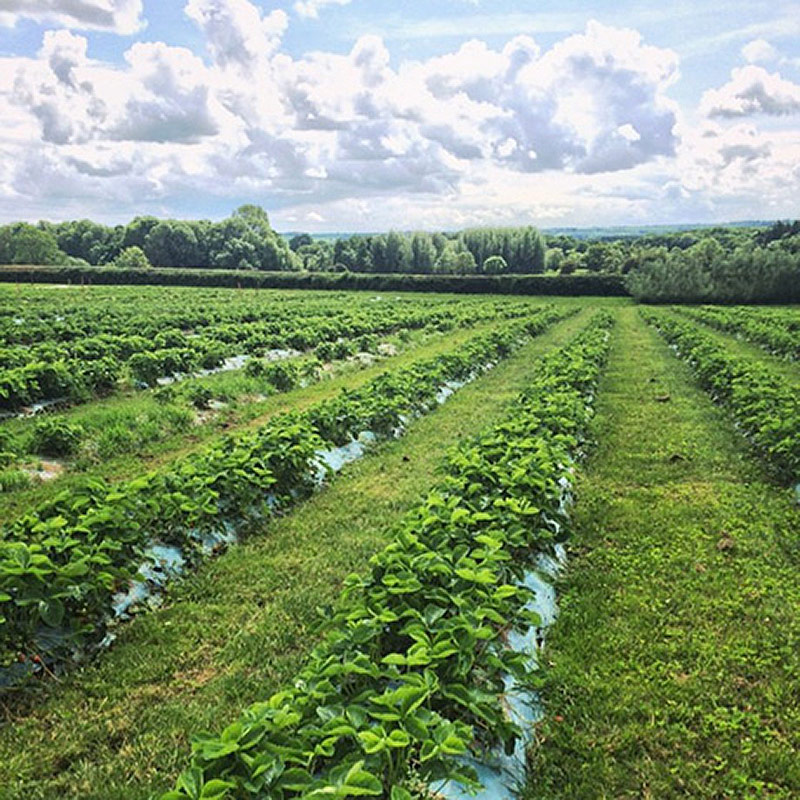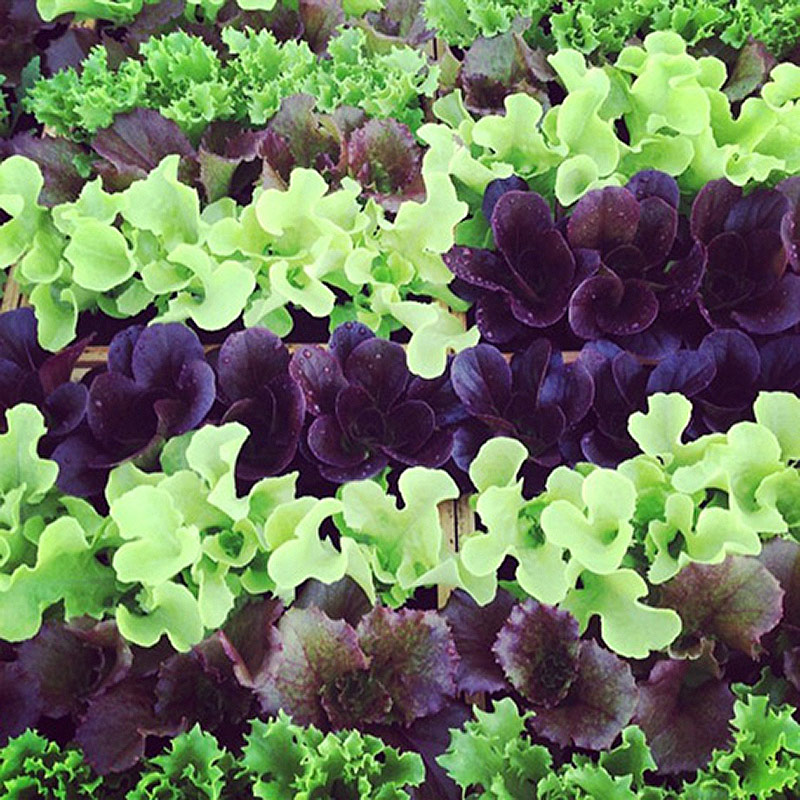
STORIES · 30.06.14
Food | Sustainability
Daylesford’s Environmental Scientist, Tim Field, has put together a ten-point list on the merits of eating organic food. It is something that I believe in passionately and so wanted to share with you on my blog.
Why Should We Eat Organic?
So We Know What’s In Our Food
Organic is food you can trust. We can’t buy all our food from a reliable farmer, grower or processer, yet after such incidents as the 2013 horse meat scandal, knowing where our food comes from has never been more important. The standards for organic food are laid down in European law, so a license is required to grow, process and market organic products, and all organic farms and companies are inspected at least once a year. It is the most rigorous of any independent food standard audit processes, so the organic label is the best way of assuring the food we eat has been produced to a standard we are happy with.

To Avoid Antibiotics
No system of farming has lower use of antibiotics than organic. Antibiotic resistance in both farming and human health is widely recognised as being one of the greatest threats to humanity in the 21st century. This has come from a reckless disregard for how bacteria mutate and develop resistance when not used appropriately and with restraint. Roughly half of antibiotics used in the world are given to livestock. The routine use of drugs, antibiotics and wormers is banned in organic farming – instead we use preventative methods, like moving animals to fresh pasture and keeping smaller herd and flock sizes.
To Help Our Environment
Organic farming reduces environmental pollution and the release of greenhouse gases from food production. It severely restricts the use of artificial chemical fertilisers and pesticides. Cleaning up of nitrogen pollution from non-organic farming costs each person in Europe around £130 – £650 a year. As well as this, organic farming uses less energy overall. This is because the system utilises energy from the sun and biological processes, rather than fossilised carbon. Organic agriculture can help fight against climate change by sequestering carbon in soils. The overall balance is less climate change gasses omitted, and more locked away.
To Stay Clear Of Pesticides
No system of farming has lower pesticide use than organic. Pesticides – whether designed to treat weeds, fungus, insects or other pests – are created to interrupt biological processes to protect crops. Unfortunately the effect is largely not discriminative only to the pest species and the rocking of the natural balance impacts on the wider ecology. Organic systems use natural processes to overcome pests, where lifecycles are interrupted and natural controls encouraged. This overcomes the requirement for drenching crops in pesticides. Besides, given that pesticides are designed to harm living organisms, we would rather avoid having them on our plate.

To Be Free Of GM Foods
We strongly believe we don’t need GM foods and they do much more harm than good. Genetically modified crops and ingredients are banned under organic standards. Meanwhile, over a million tonnes of GM crops are imported each year to feed the majority of non-organic livestock which produce chicken, eggs, pork, bacon, milk, cheese and other dairy products.
To Prepare For Our Future
Organic farming protects natural resources like fresh water and healthy soils. It is more drought resistant and therefore more resilient to the impacts of climate change.
For Animal Welfare
Organic has the highest standards of animal welfare. Free range, freedom foods, red tractor and other labels can be confusing; organic standards require more space for the animals, restrict practices that can be detrimental to welfare, and focus on lowering stress to improve health status.
To Protect Our Wildlife
Wildlife is 50% more abundant on organic farms. They support on average a third more species, including our precious pollinators, and more rare species at that.
Because Less Can Be More
Organic food contains more of the good stuff and less of the bad stuff. No system of farming has milk with higher nutrient levels than organic. Hydrogenated fats and controversial artificial food colours and preservatives such as sodium benzoate, aspartame and tartrazine are banned under organic standards.
Because We Think It Tastes Better
Many shoppers choose organic simply because it tastes good. We agree.
